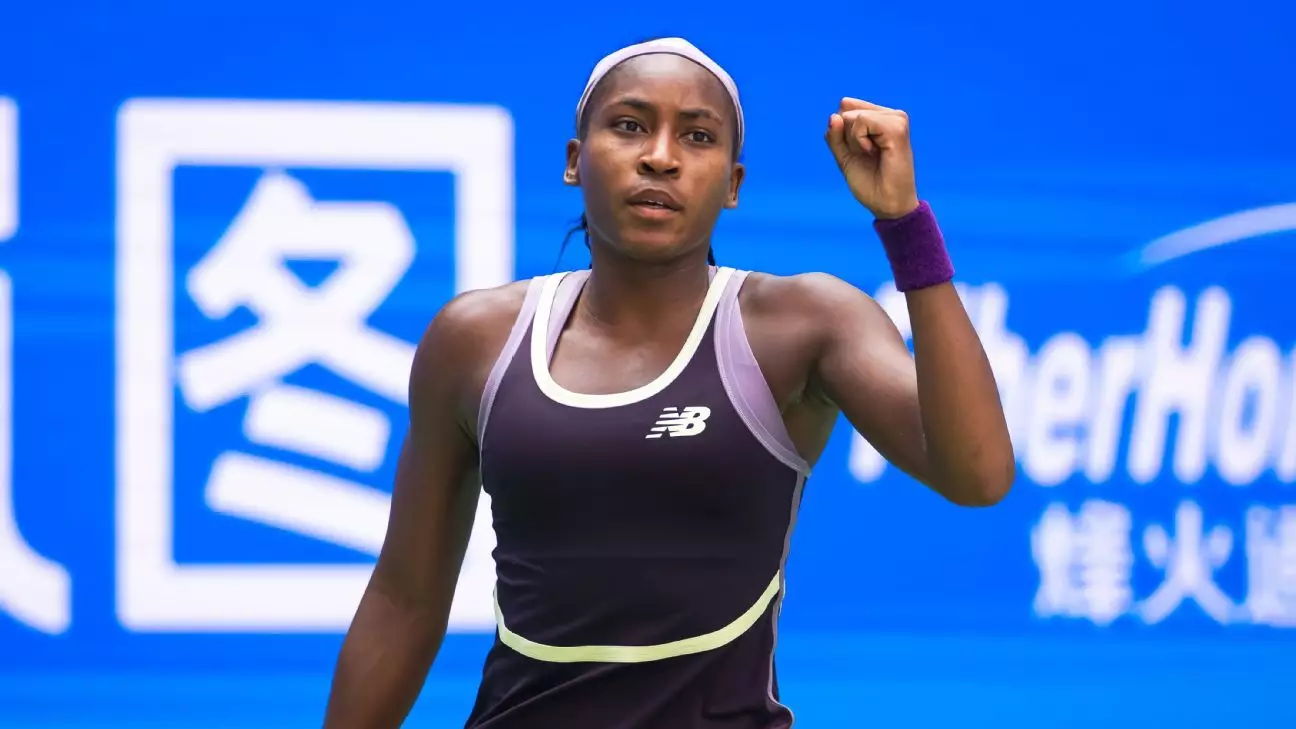The decision to hold the Women’s Tennis Association (WTA) Finals in Saudi Arabia over the next three years has ignited a fervent discussion around the intersection of sport, gender equality, and human rights. Notably, Coco Gauff, a prominent figure in women’s tennis and a former US Open champion, has become a vocal advocate for these issues. She acknowledges the potentially transformative potential of sports to initiate dialogue and foster change. However, Gauff’s reservations reveal a complex landscape in which personal convictions and professional aspirations intersect.
By staging this significant sporting event in Riyadh, Gauff believes there could be an opportunity to champion gender equality and expand LGBTQ rights in a region historically known for its rigid social norms. The WTA Finals will showcase the top eight singles players and doubles teams, which could serve as an influential platform to highlight these pressing social issues.
The relocation of the WTA Finals from Cancun, Mexico to Riyadh has not escaped scrutiny. Critics have included tennis legends such as Chris Evert and Martina Navratilova, both of whom have openly opposed the move. Their concerns are centered on the implications of endorsing a country whose human rights record has faced international condemnation. The tensions surrounding this decision unveil a profound ethical debate on the responsibilities of sports organizations when selecting host nations for major events.
Gauff’s statement about the endeavor encapsulates the duality of the conversation: the potential for positive change versus an endorsement of problematic policies. “I think sport can have a way to open doors to people,” Gauff remarked, suggesting a sliver of optimism regarding the location of the event. Yet, she remains cautious, recognizing that participation necessitates a deeper commitment to advocacy and support for tangible progress on gender and LGBTQ issues in Saudi Arabia.
A Commitment to Lasting Change
In planning the WTA Finals, the organization has pledged to invest in the Future Stars program, which aims to foster local women’s participation in tennis. Gauff has articulated a vision in which the event goes beyond mere entertainment; it carries the weight of responsibility for creating pathways for women to engage in sports. The target of attracting one million tennis players by 2030 is ambitious and signals a broader commitment to increasing participation in athletics among women in a region where opportunities have been historically limited.
However, Gauff’s candid acknowledgment of her doubts reveals a pragmatic approach to this initiative. She insists that the tournament cannot merely be a transient spectacle; it must be part of a broader commitment to catalyzing societal change. Her discussions with local women, including Princess Reema Bandar Al Saud, highlight the necessity of engaging with local voices to understand authentic needs and drive genuine progress.
Amid these developments, the concept of “sportswashing” looms large. Critics argue that Saudi Arabia’s investment in high-profile sporting events is a strategic maneuver to distract from its ongoing human rights violations. As sports organizations like the WTA navigate this minefield, pressures mount to use their platforms responsibly. The concerns of women’s rights advocates and LGBTQ groups are central in discussions about the ethical implications of such sporting events.
The WTA, along with athletes like Gauff, are in a precarious position of utilizing their visibility to promote substantial human rights discussions while grappling with the potential ramifications of endorsing a nation criticized for its treatment of marginalized communities. They must tread carefully, ensuring that their actions align with their advocacy.
Gauff’s forthcoming matches at the WTA Finals will not only showcase her remarkable talent but also serve as a focal point for ongoing discussions about equity in sports. “If I felt uncomfortable or it felt like nothing’s happening, then maybe, I probably wouldn’t come back,” Gauff stated, highlighting the significance of personal experience in her professional choices.
As the world watches how the WTA navigates this complex chapter, the upcoming events in Riyadh could either promote dialogue and inspire change or reveal the hollow promises of “sportswashing.” The stakes are high, and both the athletes and the association must remain committed to making the world of sports a more inclusive space. The path from Riyadh may very well serve as a model for future engagements with countries navigating their own battles with human rights and equality.

